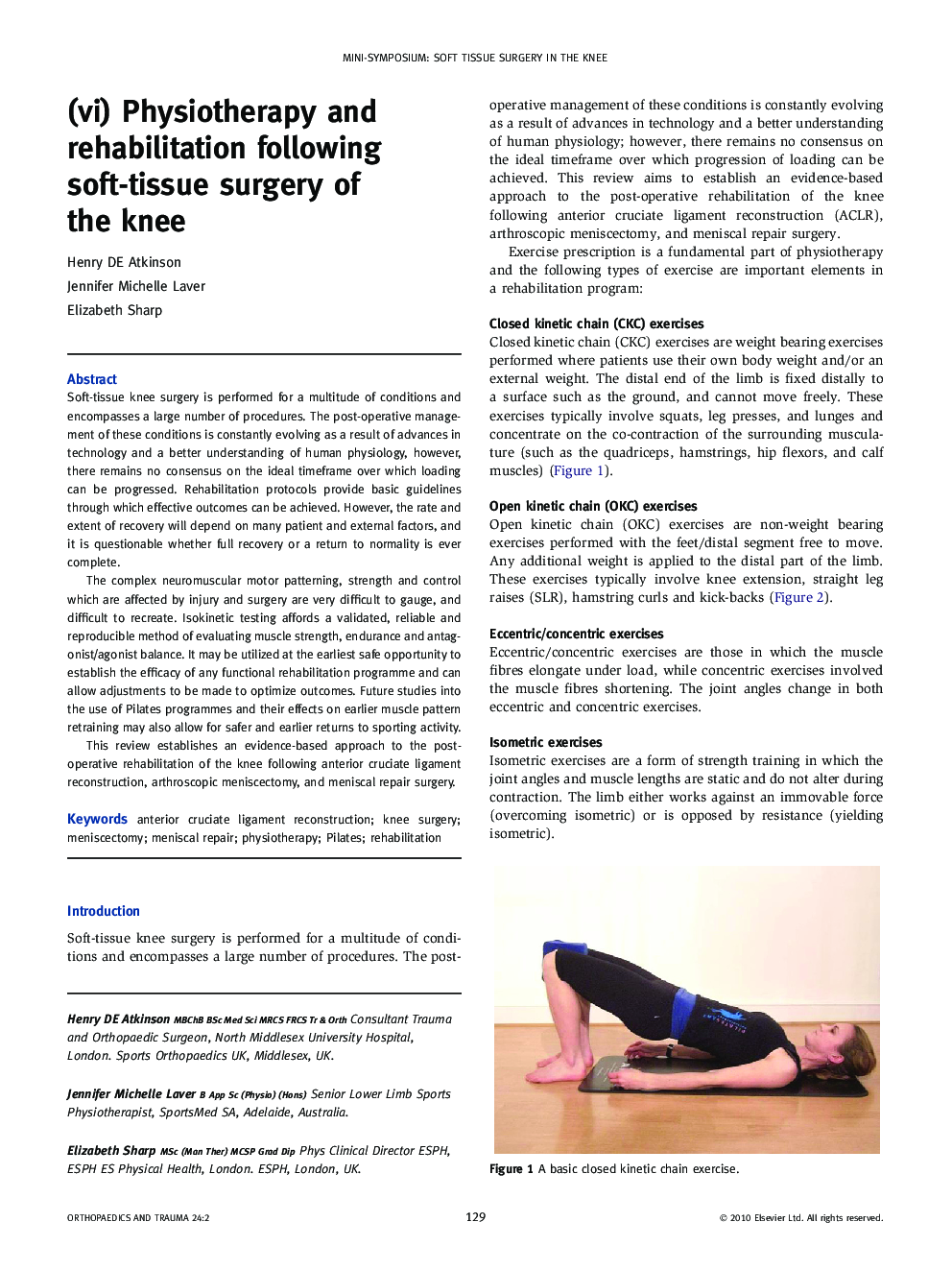| Article ID | Journal | Published Year | Pages | File Type |
|---|---|---|---|---|
| 4080557 | Orthopaedics and Trauma | 2010 | 10 Pages |
Soft-tissue knee surgery is performed for a multitude of conditions and encompasses a large number of procedures. The post-operative management of these conditions is constantly evolving as a result of advances in technology and a better understanding of human physiology, however, there remains no consensus on the ideal timeframe over which loading can be progressed. Rehabilitation protocols provide basic guidelines through which effective outcomes can be achieved. However, the rate and extent of recovery will depend on many patient and external factors, and it is questionable whether full recovery or a return to normality is ever complete.The complex neuromuscular motor patterning, strength and control which are affected by injury and surgery are very difficult to gauge, and difficult to recreate. Isokinetic testing affords a validated, reliable and reproducible method of evaluating muscle strength, endurance and antagonist/agonist balance. It may be utilized at the earliest safe opportunity to establish the efficacy of any functional rehabilitation programme and can allow adjustments to be made to optimize outcomes. Future studies into the use of Pilates programmes and their effects on earlier muscle pattern retraining may also allow for safer and earlier returns to sporting activity.This review establishes an evidence-based approach to the post-operative rehabilitation of the knee following anterior cruciate ligament reconstruction, arthroscopic meniscectomy, and meniscal repair surgery.
